-
CreatorTopic
-
05/17/2016 at 5:08 pm #5072
 AnneMember
AnneMemberLet’s talk about a PrEP efficacy trial in Bangkok, Thailand that enrolled HIV-negative injecting drug users (IDUs) and sparked a debate about standards of HIV prevention, care, and treatment in trials. Take some time to read over the case study below and respond to the following questions:
- What implications did the lack of inclusion of clean needles in the prevention package have on trial results?
- How can researchers engage stakeholders to better negotiate comprehensive prevention packages tailored to the needs of diverse subgroups?
________________________________________________________________
GPP Case Study: Bangkok Tenofovir Study (BTS)
From June 2005 through July 2010, more than 2400 HIV-negative male and female injection drug users were enrolled in BTS. Participants were recruited at drug treatment clinics, community outreach sites, and through a peer referral program. But starting in 2003, the Thai government waged a severe and widely publicized campaign against illegal drug use. This presented challenging policy and legal hurdles for trial staff seeking to implement safe and respectful research. In particular, Thailand’s narcotics law prohibited the distribution of needles to inject illicit drugs, and as a result, clean needles could not be provided to individuals participating in BTS.
The trial sparked a heated dialogue among advocates and researchers about HIV prevention and support options that were not being offered to participants. Some advocacy organizations argued that by doing a prevention trial with drug users and failing to provide all participants with clean needles, the trial failed to meet its ethical obligation to provide the best possible prevention standards. The Thai Drug Users’ Network demanded a ‘halt or redesign’ of the trial. Other community groups, including the Thai National Network of People Living with HIV, and the Thai AIDS Treatment Action Group, expressed concern about unethical and coercive recruitment procedures, the fact that needle-exchange was not being offered despite half the participants being given a placebo, and the fact that, should the intervention prove effective, there was no guarantee of post-trial access.
As a result of this outcry, global and in-country meetings were convened with the trial sponsors, civil society groups, and other stakeholders to foster dialogue and discuss some of the ethical and operational challenges to BTS. Key issues of concern included stakeholder perceptions of inadequate standard of HIV prevention in the trial, lack of community stakeholder involvement or consultation in design and development of protocol, lack of clarity around the standard of care for seroconverters and HIV-positive individuals who were screened out, and lack of participant protection mechanisms within the volatile national context. Stakeholders’ requests for specific actions were acknowledged by the sponsors during consultations, but follow-up was perceived to be insufficient according to civil society groups.
BTS results in June 2013 revealed the first evidence of PrEP efficacy among injection drug users and generated global excitement. Researchers confirmed that trial participants would be offered access to PrEP for one year as part of a follow-on trial to assess PrEP use and effectiveness outside of a randomized, blinded trial. CDC pledged support to the Bangkok Metropolitan Administration and the Thailand Ministry of Public Health to determine how best to incorporate PrEP into local HIV prevention efforts.
Not mentioned as part of the official results dissemination, however, were the concerns raised by stakeholders through the course of the trial. Some advocates and other researchers also debated the legitimacy of the trial data, given the prevention package offered to participants. The lack of resolution left a rift between civil society and research entities, with uncertainty about stakeholder support for future steps with PrEP research and potential rollout in Thailand.
-
CreatorTopic
-
AuthorReplies
-
-
06/21/2016 at 11:38 am #5364
 NkundaMember
NkundaMemberWhat implications did the lack of inclusion of clean needles in the prevention package have on trial results?
The results sparked global excitement for the evidence for PrEP efficacy was revealed which in the research circles was a win. However, the concerns of key stakeholder groups were completely ignored throughout the duration of the trial. The first major concern was the research team’s utter exclusion of stakeholders groups when planning, negotiating and ultimately deciding on the HIV prevention package. Because of the prevention package some advocates and researhcers questioned the legitimacy of the study. Other concerns included the absence of community consultation during the design and development of the protocol; the uncertainty of care for seroconverters and HIV-positive individuals who were screened out; and the lack of protection mechanisms for participants within the unpredictable national context. The lack of sustained, collaborative partnering between this research team and these key stakeholder groups resulted in a discord between the two entities, with doubt about future stakeholder support for any further PrEP research and its potential roll out in Thailand.
How can researchers engage stakeholders to better negotiate comprehensive prevention packages tailored to the needs of diverse subgroups?
Involve key stakeholder groups right from the beginning to the end of the study! Be transparent and get stakeholder input where it is needed and keep them informed of every step in the study process.
-
06/08/2016 at 6:41 pm #5258
 NancyMember
NancyMemberThis case study presents an especially challenging context for researchers who were stuck between being unable to provide what the IDU activists advocated for and needing to abide by strict government guidelines. However, the lack of inclusion of clean needles in this study calls into question how applicable (or “generalizable”) study results can be in real life situations, not to mention how useful will these results be if you never had complete buy-in from the very people you are hoping to help? I also think the researchers should probably have spent significant time negotiating with government officials to allow that component as part of their prevention package. Perhaps that is unrealistic, but they have a moral obligation to ensure that participation in their trial will not lead to adverse effects, in this case seroconversion. Obviously engagement with activists much earlier might have led to some more productive dialogue regarding possible solutions to including clean needles.
With regards to researchers better engaging stakeholders, I wonder if the researchers convened meetings to include all key stakeholders at once to discuss these issues in a forum-type environment versus one-on-one meetings. It wasn’t very clear from the information provided exactly how dialogue occurred. Perhaps serving as conveners/facilitators in a forum that included advocates (CSOs, community groups, etc) as well as government officials to work out a solution for this study that could have worked might have led to better negotiations that would have hopefully improved the design and ultimately the outcomes.
-
06/06/2016 at 1:14 pm #5230
Phumeza
MemberThe trial lacked the ethical obligation hence thier outcome wont be considered as accurate or correct. Stakeholders engagement and consultation is every importatnt in any clinical trial the trial can cover all the nessessary steps.
-
06/03/2016 at 12:14 pm #5220
 PeterMember
PeterMemberI appreciate and respects all the comments from my colleagues. This is an interesting study in that clean needles were not provided to the study participants.This could be explained by the Thailand government on drug users.The provision of clean needles is a contentious issue where a solid universal position have never been attained due to the various country context.It may sound unethical not to provide needles but it also mirror the true real life happenings.The study results cannot be ignored but am not sure what analysis was conduct whether it is intent to treat or per protocol analysis.
This study also suggest that stakeholders were not properly involved.Researchers need to involve also stakeholders in designing a comprehensive HIV prevention package.This therefore calls for empowerment efforts among the various stakeholders to inform a trial.The researcher is obligated to report both the negative and positive outcomes of a trial.
-
05/29/2016 at 11:14 am #5171
 HaoyuMember
HaoyuMemberfrom the case study, it’s obvious that distrust from the community, toward the research team and the trial results was strong. This is really unfortunate as it is a landmark study that took five years to complete. I wish I know more about the circumstances. was there any NEP programs going on at all in the country before the trial started? As the law was in effect at least 2 years before the trial, it is a bit surprising that the researcher teams did not flag it as a serious potential problem, and engaged stakeholders, getting input into prevention, harm reduction package aspects during the trial designing phase. the dialogue around this problem should be continuous, transparent and inclusive, even if in the end, the government authorities and laws are too much for the trial team to overcome and provide the services. Honestly addressing these concerns as a part of dissemination is also something they could have done in the end, even if they were not able to resolve the issue to everyone’s satisfaction.
if there’s a more detailed version of this case study, I would really like to read. As Kathrine said, going forward with next generation of prevention products, and with different prevention standards from various regions, a case like this really can offer valuable insights.
-
05/26/2016 at 10:24 am #5161
Isaac
MemberDue to lack of inclusion of clean needles in the prevention package on trial, results will not be accepted and this is because some procedures that qualify acceptable results were not followed.
I feel that in most trials , stakeholder engagement is not given a priority until a problem arise then we usually realize and go back to find out what was not done accordingly and in most cases is lack of GPP implementation.With what i have learned with the GPP team, it is very clear that the base stakeholder engagement is very important to create a safe fall back and back up if anything changes or goes wrong in the process of study implementation.
This help the community in return to trust researchers and their teams for even future studies. However, in this case the trust was lost on both results and trial itself and eventually it might be difficult to come back with any trial in the same environment/community.
GPP/stakeholder engagement should be given a place in any trial from the design of a study up to long after a study is implemented
-
05/25/2016 at 2:39 pm #5157
 MarkMember
MarkMember* What implications did the lack of inclusion of clean needles in the prevention package have on trial results?
The dictionary provides a number of definitions of “implications” and I’ll address the question based on two of them:
If one reads “implications” as “something that is suggested without being said directly: something that is implied,” I’d say that one very obvious implication from the community’s point of view is that achieving the number of endpoints (HIV seroconversions) required to power the statistical analysis and evaluate efficacy of PrEP in this trial was deemed more important by the researchers than providing the best possible HIV prevention standard in the trial (and the community’s ethical and moral concerns.)
If one reads “implications” as “a possible future effect or result,” I’d say on the information provided here in the case history, the implications were a number of general harms to this, other ongoing, and future research in the area:
1) Since the standard of HIV prevention provided within the trial did not meet what a substantial contingent in the community felt should be provided, a smoldering distrust co-existed with the conduct of the trial and persisted afterwards.
2) The potential for successfully conducting similar clinical trials in the future with participants from this population may have been reduced; successfully conducting such future trials so may require more effort and expense. Interestingly and importantly, advocacy and activist did not reach a level that stopped or prevented completion of the trial. This leaves me pondering the overall attractiveness of participation in the trial, which was placebo controlled, and whether efforts to counter therapeutic misconception via education, outreach, and informed consent were sufficient. In any case, however, although the level of activism that developed wasn’t sufficient to stop the trial, the level of activism (distrust) that remains could well be enoough to prevent a new trial from being started – particularly if there are not radical differences in both the protocol and the engagement process.
3) Moreover, while the trial results appear to have been generally accepted by the scientific / research community, they may not be deemed legitimate or may be distrusted by the very population originally intended to be served by the trial’s conduct. In other words, the conduct of the trial may have harmed the usefulness of what was learned in the participant population.
4) Because there were differences (sometimes stark) between the requests made in stakeholder meetings and any actions taken as a result of those meetings, any post-trial distrust may include cynicism about the engagement process and questions about the sincerity of those who conducted those efforts.
* How can researchers engage stakeholders to better negotiate comprehensive prevention packages tailored to the needs of diverse subgroups?
The short answer is more effectively implementing GPP. It would appear in this case that efforts to engage stakeholders were, simply put, “too little, too late.” While it may be true that there was no possible way to integrate syringe exchange in this trial, it may also be true that the trial should not have been conducted in this country. This might have been an outcome of early GPP / engagement regarding site selection. Regardless of whether the location was deemed appropriate, the engagement processes as implemented in this case appear to have failed to acheive mutual understanding of what could and could not be done, and failed to acheive sufficient compromises or alternate solutions on other issues to maximize trust and confidence.]
An opportunity for the researchers to demonstrate their own “advocacy” was missed when they failed to explicitly address the ethical / moral issues of being prohibited from including clean needles and the ensuing controversy by means of publication.
-
05/25/2016 at 1:44 pm #5156
 LuckyMember
LuckyMemberThere are questions to be asked such as the sudden reason for prohibition of drug use? what is the prevalence of HIV infections among drug users? , any OPEN communication channels with policy makers?.
I guess the trial have done good to engage all stakeholders in the process of introduction trial for the fact that they were able to recruitment at institutions such as drug centre. However lack of assisting participating with clean needles is of great concern because cross needle use is one of the high risk of getting HIV, their risk reduction methods are of great concern. however because participants were already in the study some kind of concession should have done among authorities to allow distribution of clean needles to the centre under strict condition.The centre would in future have to have get the national representative on its CAG or as an extension of important stakeholder needing regular feedback in order to avert such policy announcement. Because site are not service provider they need to improve their resource list in order to have effective referral system with feedback loop to gauge if patients did visit the centre to get non-clinical trial services.
By the way, is not all sites have CAG/B some use the advocacy groups or external committee as part of accountability to community/ies, non-mention of CAG could be that they in a different formula in community engagement.
To be honest it is not all the time government will consult if policy decision is taken so a little could have been by the site. However proper planning to accommodate and avoid further infection can be applied like post trial treatment and effective risk reduction methods.
Thanks
Lucky -
05/25/2016 at 3:09 am #5152
Bamidele
MemberWith regards to how best the researchers can engage stakeholders to be able to provide a comprehensive HIV preventive package, I think the environment of the PrEP trial needs to be addressed first. In the case of Thai PrEP trial, the law prohibiting the use of clean needles was the environment that ought to have been addressed first. It was obvious that within this legal framework it will be very difficult to provide a comprehensive HIV prevention package. So what the research team can do in this scenario is to engage CSO or any other formidable legal institution that can proactively interact with the legislative arm of the government to create an enabling environment for HIV preventive interventions during the trial. This should be at the formative stage. The HIV communities such as people living with HIV/AIDS and HIV treatment action group need to have their capacity built by the research team through training and quality education to serve as an advocate for the IDU or any applicable trial participants on the use of HIV intervention tools. Consultations with policy makers and legislators of the country where a proposed trial will take place, regarding study protocols and HIV prevention activities are also very important.
-
05/25/2016 at 2:22 am #5151
Bamidele
MemberIn as much as I totally agree with the contributions of other participants with regards to insensitive attitude of the research team to stakeholders concerns on the standard of HIV prevention and distrust in the outcome of the Bangkok PrEP trial, I would like to focus my comments on the implications of the non-provision of clean needles to the trial participants. First, the non-provision of clean needles would have increased the risk of HIV transmission among IDUs. This would have placed the affected IDU patients on HIV treatment and care. No matter how small the number of IDU victims was during the trial. it is worth reporting. What is also not clear is the manner of Data analysis. Is it as per protocol or by intention to treat analysis?. I will not be surprised if participants’ retention was also an issue in the trial. This is because by the concerns of the Thai people living with HIV/AIDS and the treatment Action Group, their influence on the IDU trial participants to withdraw would have been much. Another implication is the possible bias in the selection of indicators to monitor the performance of the trial and to evaluate its impact. The . IDU trial participants seemed to be denied of the opportunity to contribute to the trial protocol during the formative stage of the trial as there was no evidence that they were educationally strengthened to do so.
In my country (Nigeria) a few years back, the Tenovovir trial in Ibadan was stopped by the ethics committee because CAB was not properly constituted and their functions ill defined. In the Thai trial, CAB was not even engaged coupled with the insensitive behavior of the research team to the Thai illicit drug law and clean needle ban. The role of Civil society of any country to proactively seek for amendment of bills or laws or policy in exceptional situations like the PrEP trial among IDU was not exploited by the research team using collaborative channels or consultations or engagement (whatever we can call it). To me this is a great lesson for all potential PIs on PrEP or other clinical drug trials in other HIV endemic countries -
05/24/2016 at 5:53 pm #5148
 KathrineMember
KathrineMemberIn response to Anne’s comments — I think this case study is incredibly relevant to trials being planned now. Some trials of next generation prep products, like long acting injectable PrEP or monoclonal antibodies, are being designed with a standard of care comparator in settings where oral daily PrEP is not available. I think it is important to engage local stakeholders in conversations about this to assess their understanding of tenofovir-based PrEP and the gaps in their knowledge, and whether they understand that a product that does protect against HIV exists already but is just not available in their national context yet. In the Thai example, it seems like clean needles were not available inside or outside the trial – so no injecting drug users were able to access them, even though it seems like ethically wrong to not provide clean needles . Likewise, if a new PrEP study is implemented in a place where TDF-based prep is not available, then is the study unethical for not providing TDF to participants? The issue of standard of care in the local settings is very difficult to navigate. However engaging with community stakeholders, discussing these issues ahead of time, and having a discussion about what the trial will commit to if PrEP does become available in the country, are all important topics for community consultation. Trials have to operate within national contexts with national laws and policies — but communication and transparent discussion with the community would hopefully increase trust and transparency.
-
05/23/2016 at 5:38 pm #5121
 SantorraMember
SantorraMemberHi Ella,
I think that researchers probably did plan for the study and likely even consulted with their CABs but, they did fail in researching Thailand’s drug laws and the implications that it could have on their research plan and with their stakeholders. In this case, there was a lack of effective communication (the importance of which I stress at my site all the time) between researchers/coordinators, stakeholders, and possibly even participants themselves which had the potential to derail all of the work that was done to launch BTS. It seems that stakeholders did not trust the legitimacy of the results because they were skeptical of the research team’s ethics as opposed to the results themselves being false. Either way, there is definitely room for improvement in this case!
-
05/23/2016 at 5:28 pm #5120
 SantorraMember
SantorraMemberDespite the political barriers surrounding the controversy, the decision to not provide clean needles made it seem as though researchers did not care about reducing the risk of contracting HIV in participants who were receiving the placebo. To add insult to injury, the stakeholders concerns were not even addressed during the dissemination of the trial results. This, in turn, led to stakeholders’ mistrust of the trial team and question the legitimacy of the results.
Although the results of the trial ended up being promising, it may have been better to delay starting the trial until a larger discussion about the concerns of drug user advocates and the importance of providing clean needles to injection drug users was had. Lead PIs and coordinators could have also mentioned that they took note of stakeholders’ concerns, why they were unable to make changes, and that they planned to address them in future studies.
Researchers can engage stakeholders better by not only listening to their concerns but also taking them into strong consideration and mapping out the different possible outcomes of including or not including a suggestion. When politics and laws are involved, it is best to begin engagement early, provide statistical data to relevant lawmakers/strategists, and how changing a policy or allowing an exception for a study will help both the study population and the community at large.
-
05/23/2016 at 7:56 am #5108
 LarissaMember
LarissaMemberWhat implications did the lack of inclusion of clean needles in the prevention package have on trial results?
It created distrust from stakeholders and advocates in the trial outcomes. “The lack of resolution left a rift between civil society and research entities, with uncertainty about stakeholder support for future steps with PrEP research and potential rollout in Thailand”. Future trials might be affected by this distrust between stakeholders and researchers.
How can researchers engage stakeholders to better negotiate comprehensive prevention packages tailored to the needs of diverse subgroups?
The research team should engage with stakeholders from the beginning of the trial and share goals and objectives. When the research team was facing difficulties, due to changes by the government in the provision of clean needles, the team should have communicated this to stakeholders and ask for advise on how to deal with these difficulties. Continuous consultation and communication is critical for the continuation of the trial and rollout. Stakeholders’ opinions should have been included when disseminating results, to create trust from stakeholders for cooperation in future trials and follow-on studies.
Kind regards,
Ndlovu Research Centre team
-
05/22/2016 at 8:59 am #5106
 AnneMember
AnneMemberYes, Alison and others– and I think some of these lessons learned from Thailand are very relevant to the changes in the prevention landscape that are impacting our work RIGHT NOW!
- How are communities in your setting reacting to PrEP? What is their real understanding? What are the gaps? How are you addressing this in your engagement plans?
- Who are we actively including in conversation about the prevention package before a trial begins, particularly in countries where PrEP has been licensed/approved and is being rolled out or introduced as standard of care?
- What are the current capacities of health systems and providers to provide PrEP and also support people with PrEP adherence, in terms of services? How will your team assess the capacities and build two-way referral pathways?
- In South Africa , the PrEP roll out has been focused on sex workers, so there might be potential of stigma. If PrEP users are stigmatized, what effect does this have? Who are you involving in this discussion?
Of course, this is an ongoing conversation — with many stakeholders at various levels.
The trial in BKK is a more pronounced example of ethics and participatory practice–but my point is this: take some time to really think about the potential relevance of this topic area and the actual linkages to your own work and GPP implementation!
-
05/20/2016 at 7:12 am #5102
Alison
Member- What implications did the lack of inclusion of clean needles in the prevention package have on trial results?
Participants and advocates raised the issues that not including clean needles in the prevention package resulted in unclear results. A wide array of stakeholders voiced their concerns yet research teams did not adequately follow these up, helping maintain the relationship between stakeholders and the research team – loosing stakeholders trust and respect.
- How can researchers engage stakeholders to better negotiate comprehensive prevention packages tailored to the needs of diverse subgroups?
Listen to the advocates/ stakeholder groups who voice the needs of the subgroups and engage them actively. Follow up and maintain these relationships throughout the whole of the trail.
-
05/20/2016 at 6:19 am #5101
 EllaMember
EllaMemberThe trial has no ethical obligation
results will be false or not available
i dont think they consulted the CAB
there was no planning for this study -
05/19/2016 at 9:36 pm #5100
 Mahesh RamraoMember
Mahesh RamraoMemberI agree with Bernice, and Anthonia that trial has not ethical obligation then result should be spurious and unreliable data will not be taken in future consideration. Trial also likely to loose opportunities for future partnership and loose strong relationship with key stakeholders.
I am not getting one thing that Thai government waged a severe and widely publicized campaign against illegal drug use, and Thailand’s narcotics law prohibited the distribution of clean needles, in 2003, and then also BTS was started in June 2005. This means research team, trial sponsor, implementer fail to do formative research, banned clean needles issue was not solved so it became problem for trial, CAB was not taken in consideration, and Thai government policy was not studied. Researcher must be engage stakeholders keeping in consideration areas of trial planning, government policy of respective country, communications, issue management plan.
-
05/19/2016 at 4:59 pm #5097
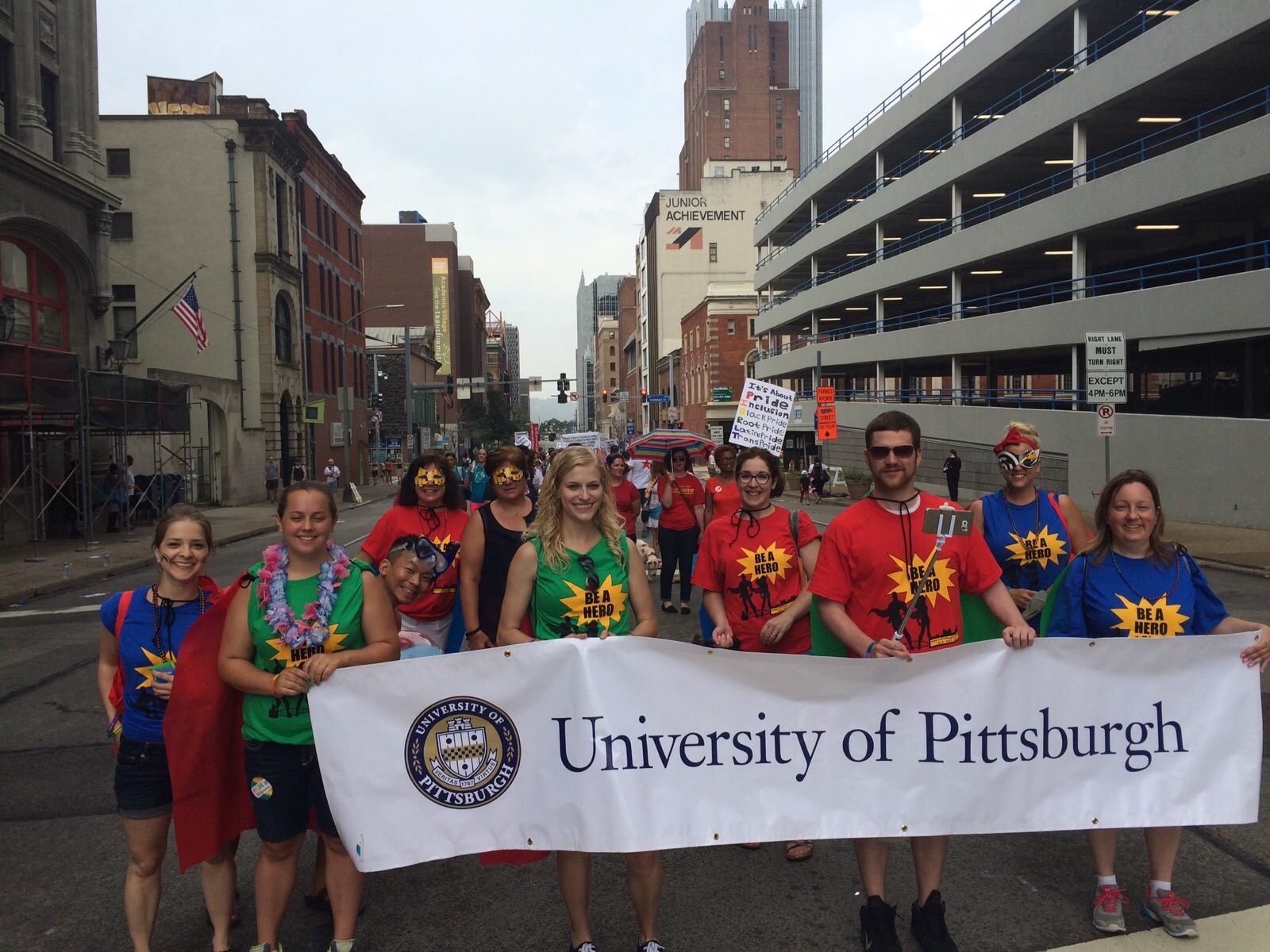 SherriMember
SherriMemberHow can researchers engage stakeholders to better negotiate comprehensive prevention packages tailored to the needs of diverse subgroups?
The main thing researchers need to do is start earlier. Be proactive, not wait until a problem arises. and when a problem does arise (government becoming more strict about providing clean needles) thee should be a plan of attack ready to go (which organizations can be consulted, who can be spokes person, etc).
I agree with James- there was no mention of CAB anywhere in the case study. I don’t understand why thee was not earlier consultations.
-
05/19/2016 at 4:57 pm #5096
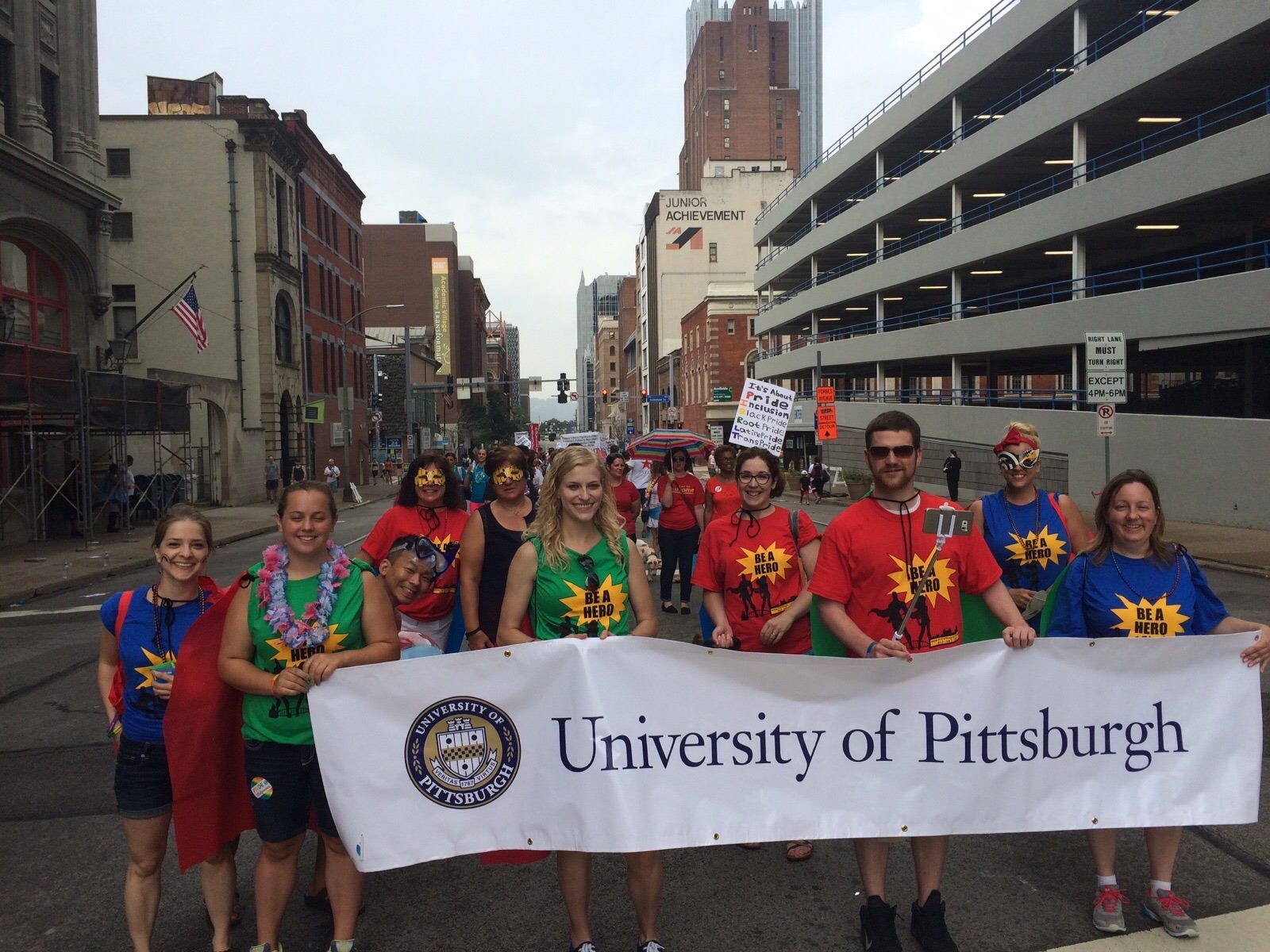 SherriMember
SherriMemberWhat implications did the lack of inclusion of clean needles in the prevention package have on trial results?
Since the legitimacy of trial results were questioned (due to the HIV Prevention packaged offered), the data obtained was not considered accurate and reliable, therefore hindering the advancement of the scientific agenda.
-
05/19/2016 at 2:44 pm #5095
 JamesMember
JamesMemberI will agree with Antonia, the trial lacked ethical obligation, standard of care packages was not included, process of recruiting participants were vague and not properly informed, stakeholder engagement in the process was not considered , there was no informed process.
As a drug user, I believe the NSP as a formal and global standard of care package was not included and date gotten from such research cannot be deemed accurate especially when PWID research participants are placed on placebo.
Secondly , researchers need to support the development, input of stakeholders especially CAB in any research process, A CAB need to get an informed consent on the process which a research will go,objectives, procedures, goal and explanation of risk and benefit to participants (PWID Participants) Need to engage PWID led network or organization, PLHIV Networks , Media and policy makers and all related stakeholders and allies before a research kick on. The process should also be sustained during the research process on a quarterly basis so address power dynamics/ imbalances that can threaten the continuation of a research and other factors coming to bear.
The case of study in THAILAND is one example we must educate our colleagues and our team about so as to avoid such occurrence that can question the efficacy of a data and result of a trial
-
05/19/2016 at 10:25 am #5094
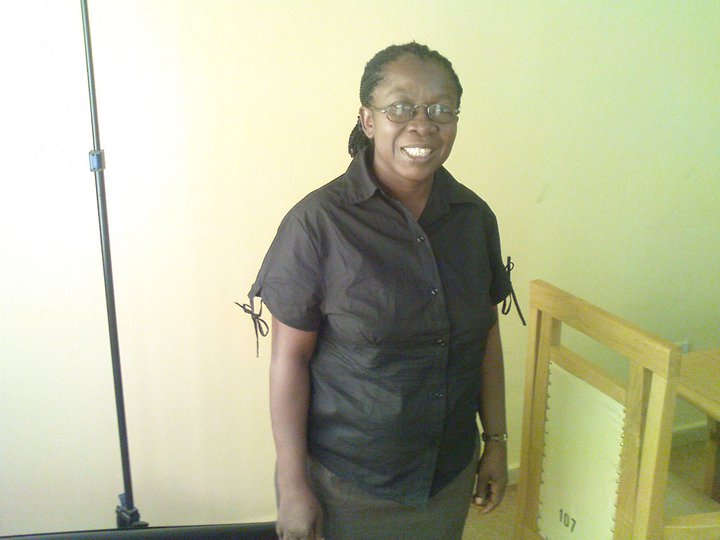 AnthoniaMember
AnthoniaMemberAs the trial has no ethical obligation the result will not be authentic and reliable. The data will not be accurate and it will not be taken into consideration as it should have taken while analyzing.
Researchers should involve the stakeholders from planning to implementation stage with regular meetings, focus group discussion, brainstorming and deliberating on how to make future trial ethically balanced. Some members of the diverse sub groups should be part of the stakeholders so that there will be positive communication on including necessary requirements like comprehensive prevention package, etc in order to make the trial safe for the trial participants.
-
05/19/2016 at 9:31 am #5093
 BerniceMember
BerniceMemberThere are doubts and misperceptions surrounding the result. Hence, it would be taken to be inaccurate, unreliable and unacceptable.
The concerns raised by stakeholders would eventually be revealed as it shows inability to manage unexpected challenges.
The trial is likely to loose opportunities for future partnership and loose strong relationship with key stakeholders.
Researchers can engage stakeholders to better negotiate by applying GCP and GPP guidelines. Taking into consideration areas of
Guiding principles, Trial planning and conduct, as well as Communications and issues management plans.
-
07/04/2016 at 2:19 am #5462
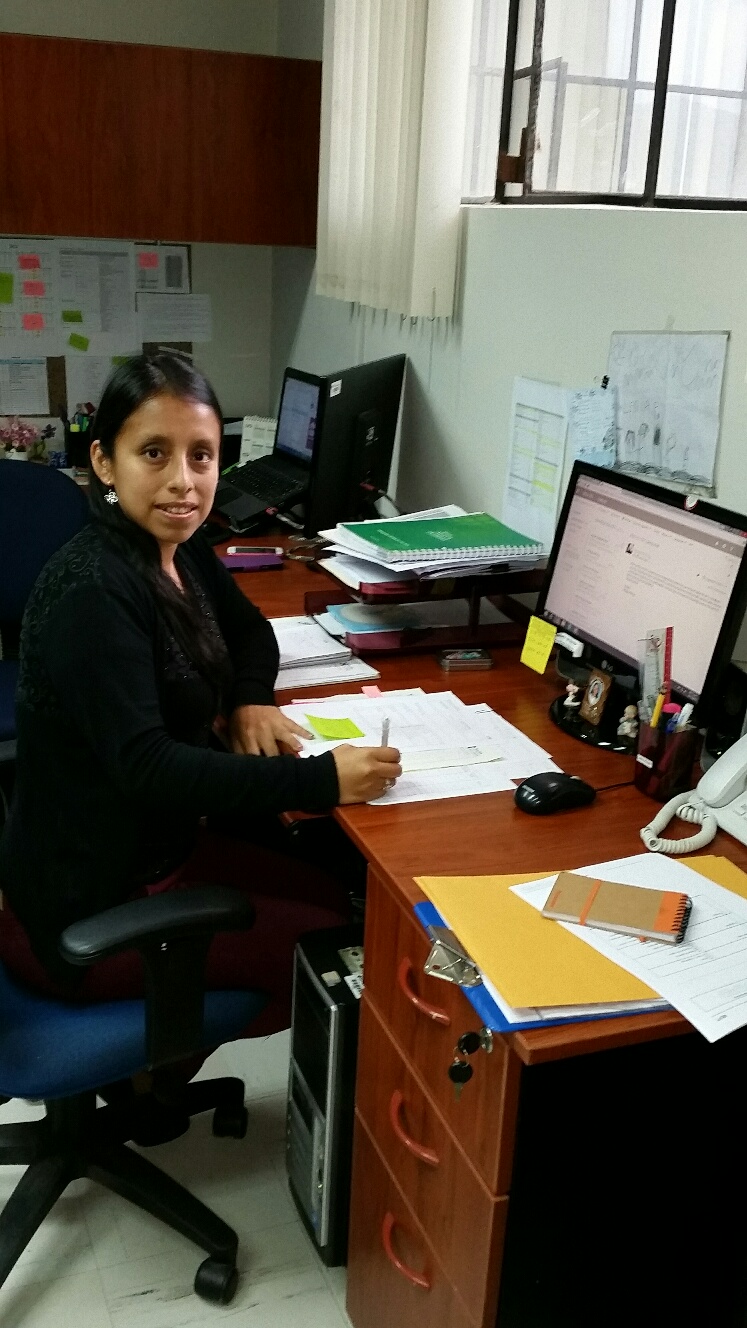 CynthiaMember
CynthiaMemberDespite of showingthat results of trial were beneficial to the population , these may not apply to the reality of the comunity where had been developed, also the feeling of discomfort of stakeholders and others representatives of the community can affect on the decision to obtaining the offered product later.
Of what I learned about GPP, can be defined that the involvement of stakeholders is very important since the begining of research, in this way since the point of view of community, will be designed a research based on their needs and not just on what we want to investigate.
-
This reply was modified 9 years, 4 months ago by
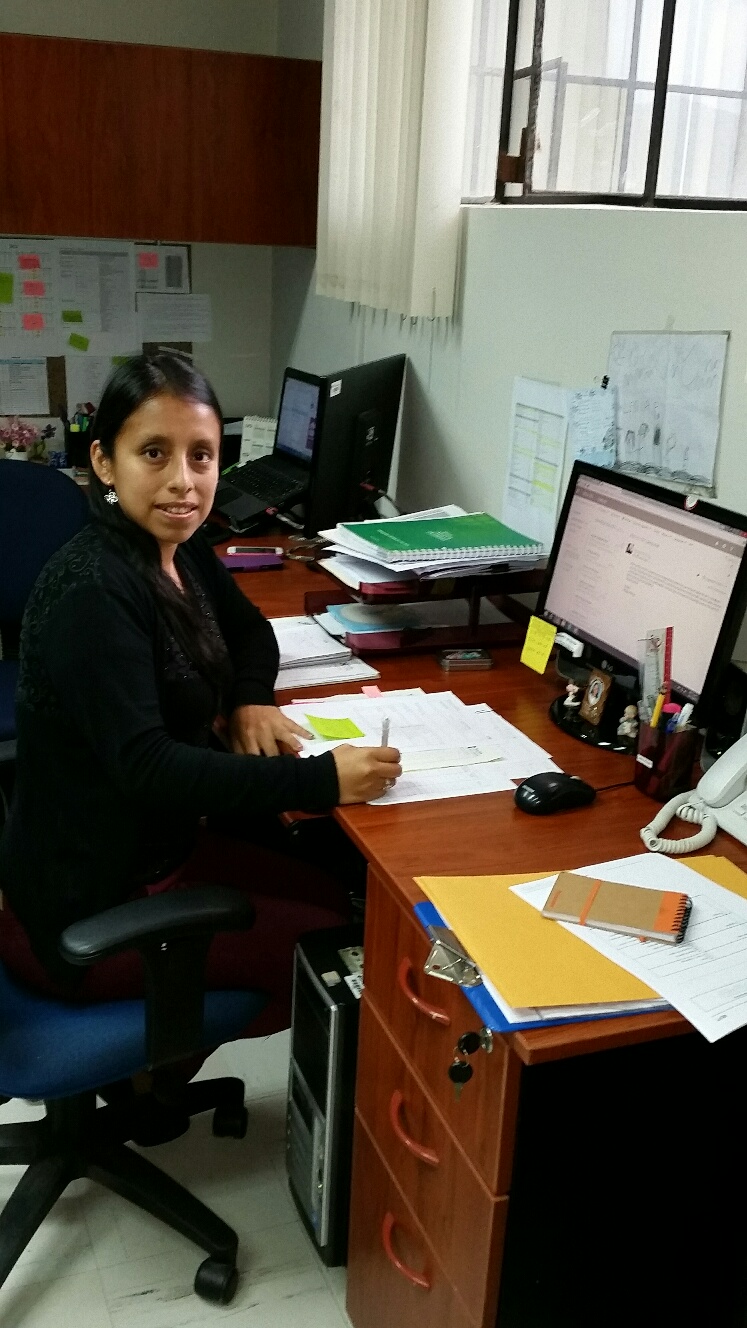 Cynthia.
Cynthia.
-
This reply was modified 9 years, 4 months ago by
-
-
AuthorReplies
- The forum ‘GPP Online Course Forum_March 2016’ is closed to new topics and replies.


